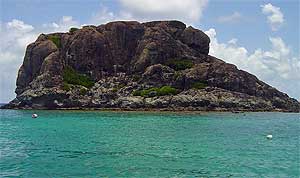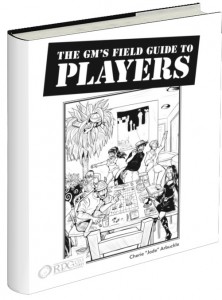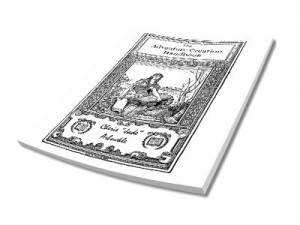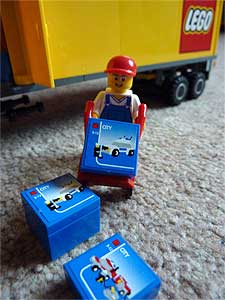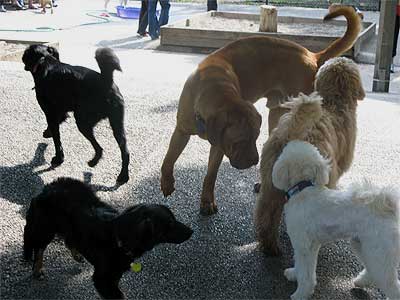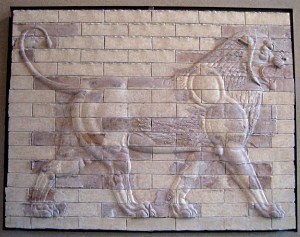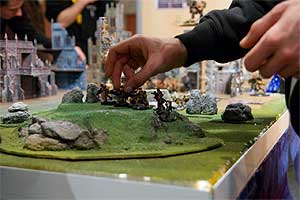 Setting up a campaign can be a challenge. Where do you start? What’s important to develop before play? How the heck do you even start planning a campaign?
Setting up a campaign can be a challenge. Where do you start? What’s important to develop before play? How the heck do you even start planning a campaign?
Below is a list of campaign creation resources available online:
- How to Organise Excellent RPG Campaigns (http://dukestreet.org/archives/004096.html): Eleven tips for working with players and what (and how much!) information to prepare for your game.
- How to Start an RPG Campaign Step 1 — Want It (http://homework.never-ends.net/2010/01/how-to-start-an-rpg-campaign-step-1-want-it/): The first post in a series on setting up campaigns. This one covers getting yourself motivated to begin a campaign. Other posts cover choosing a game system, choosing a genre, story creation, worldbuilding and more.
- Campaign Creation (http://www.campaignmastery.com/blog/category/campaign-creation/). A list of posts about campaign creation on the Campaign Mastery website.
- Obsidian Portal (http://www.obsidianportal.com/): A site that hosts campaign wikis. A GM can set up a site for his game here, providing a one-stop place for the campaign’s players to look up important NPCs, summaries of previous game sessions, game calendars, and more. Offers both free and paid services.
- What qualities are important when creating a fantasy RPG campaign? (http://rpg.stackexchange.com/questions/11/what-qualities-are-important-when-creating-a-fantasy-rpg-campaign): Tops for creating a generic fantasy setting for an RPG campain.
- 11 Questions for starting a new campaign (http://www.rpggm.com/blog/2012/12/13/questions-for-starting-a-new-campaign/): My own post giving eleven questions that will help you set up a new RPG campaign.
- RPGTable Online (http://www.rpgtableonline.com/welcome.php): This site offers on-line tools to help you run your game, including die rollers, maps, monster stats, tokens, and more.
- Building RPG Campaigns (http://thewargate.blogspot.com/2011/10/building-rpg-campaigns.html): Advice on choosing a game system, creating adventures, creating a campaign story, setting up for sandbox campaign play, using published adventures, closing a campaign.
- Campaign, Adventure, and Encounter Design Articles (http://www.roleplayingtips.com/rpg-articles/#design): A list of articles on the Roleplaying Tips website related to rpg campaign creation. Some topics include Choosing a Setting, Preparation of Material for a Roleplaying Adventure, Writing the Effective Villain, and more.
- Creating an RPG campaign for children, pt. 1 (http://rpgathenaeum.wordpress.com/2012/03/20/creating-an-rpg-campaign-for-children-part-i/): The first of three posts on planning a campaign for kids, using as an example the campaign the author created for his 7 year old son.
How about you? Do you have any favorite campaign creation resources? Feel free to post them in the comments section below. What do you find the most difficult about creating a new campaign? Any tips for making campaign creation easier? Please share!
[Image courtesy of aleske via Flickr Creative Commons]
Related articles
- The 7 RPGs You’ve GMed the Most, and the 7 RPGs You’ve Played the Most (gnomestew.com)
- A Tale of Two Types (gnomestew.com)
- 11 Questions for starting a new campaign (rpggm.com)
- Aging With The Hobby (rpgblog2.com)
- Gaming Charters and Social Contracts in Detail (gnomestew.com)
- For the future of RPGs…get rid of the DM! (geekken.blogspot.com)
- January RPG Blog Carnival: New Beginnings (koboldenterprise.com)


